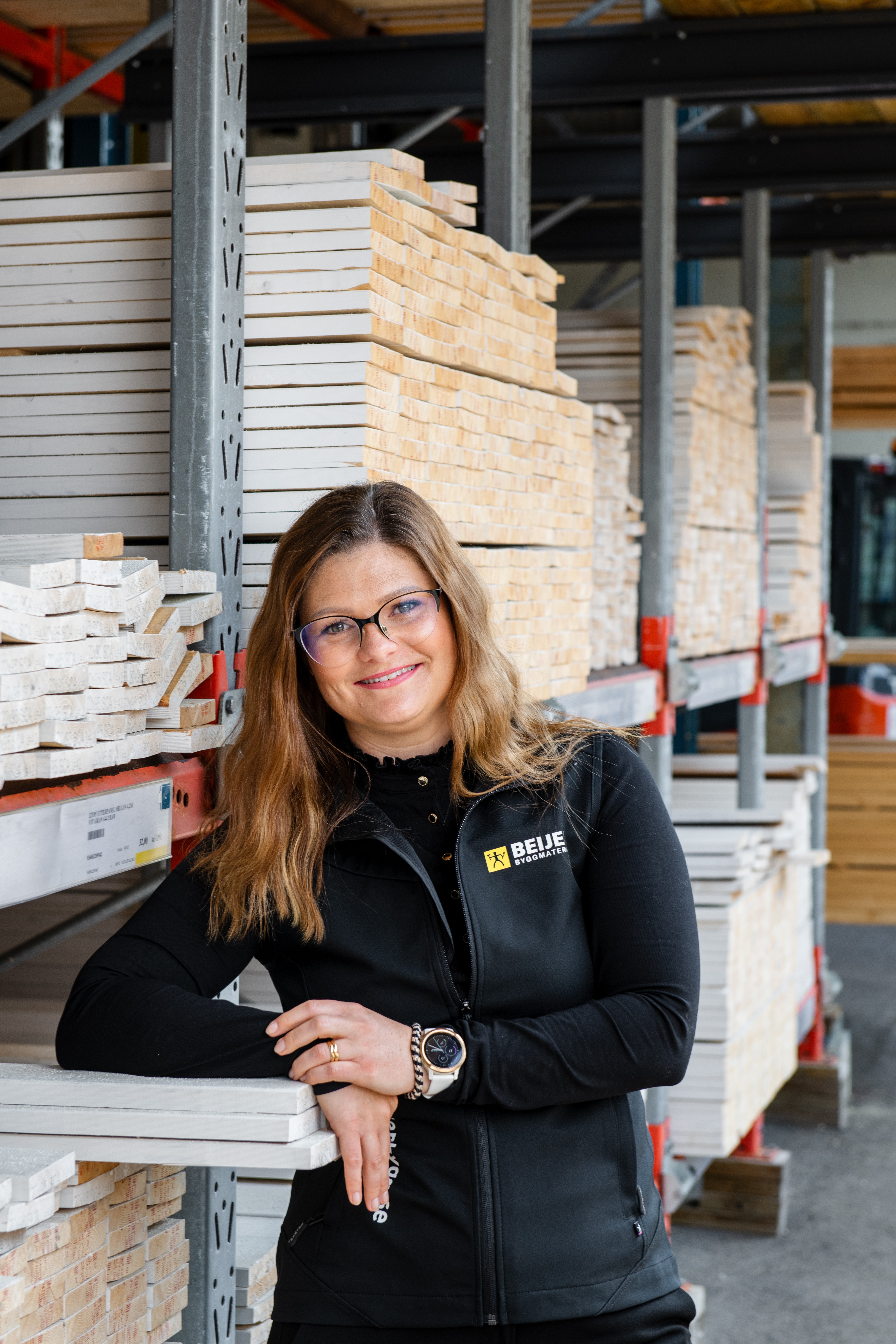Content in building materials needs more focus
Alexandra Rosenqvist works as Sustainability Manager at Beijer Byggmaterial, Sweden's largest builders' merchant chain offering building materials and delivery for both private and corporate customers. This means that countless properties and houses in Sweden are built with materials from Beijer, which ensures that the content is not harmful to health - including through the BASTA system.

There is a lot going on in the field of sustainability and building materials - there are more and more certifications, requirements and EU legislation to be interpreted. The need for structured, high-quality data is increasing, which also leads to an increased administrative burden. One of the industry's Achilles' heels, says Alexandra, is that it is not possible to use just one data source. Ensuring that sustainability information is available in multiple systems is a costly exercise.
That said, Alexandra highlights that BASTA has made it easy to work with and share data. To meet the challenges of the future, efforts towards simplification and streamlining need to be prioritized. Alexandra says:
- If we are going to build sustainably, we need to share data smoothly and efficiently. BASTA has taken many steps in this direction.
One of the challenges Alexandra sees for the future of sustainable construction and building materials is the challenge of circularity. Today, all processes and policies are built on a linear approach - suppliers provide new materials, they are used in construction and discarded during demolition. The linear approach is unsustainable from several perspectives and needs to be replaced by circularity, which poses a whole new set of challenges. How should content be assessed on recycled materials? How does it work with guarantees? Risk management and insurance?
Another concern is the need to raise awareness about the content of building materials. In retail and food trade, there is a plethora of eco-labels for everything from detergents to pears. Most of us know what we eat and what's in our food, but few are aware of how the indoor environment and the buildings we spend most of our time in affect us.
Alexandra often comes across the idea that there are guidelines and laws in place to ensure people are not exposed to dangerous chemicals, but:
- The more you learn about this area, the more you realize that this is not the case. Some chemicals are hazardous, some chemicals we suspect are hazardous and in most cases we do not know. This is an issue we need to focus on even more going forward.
Alexandra Rosenkvist will participate in the BASTA day on November 26 with the session "Environmental data in the building materials trade". Read more and register here.
